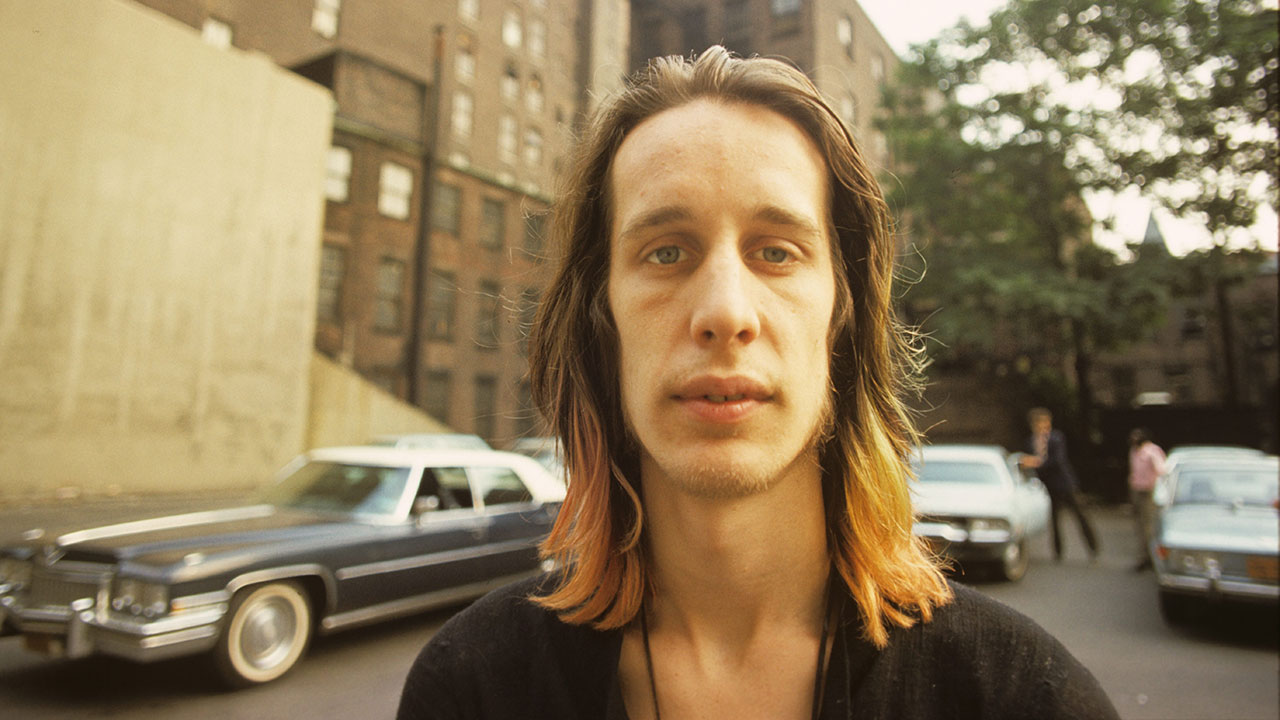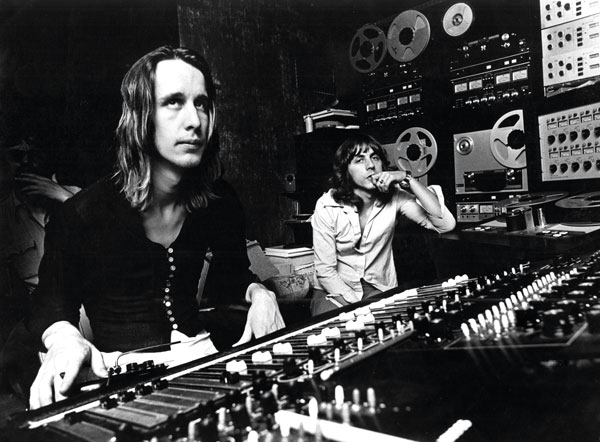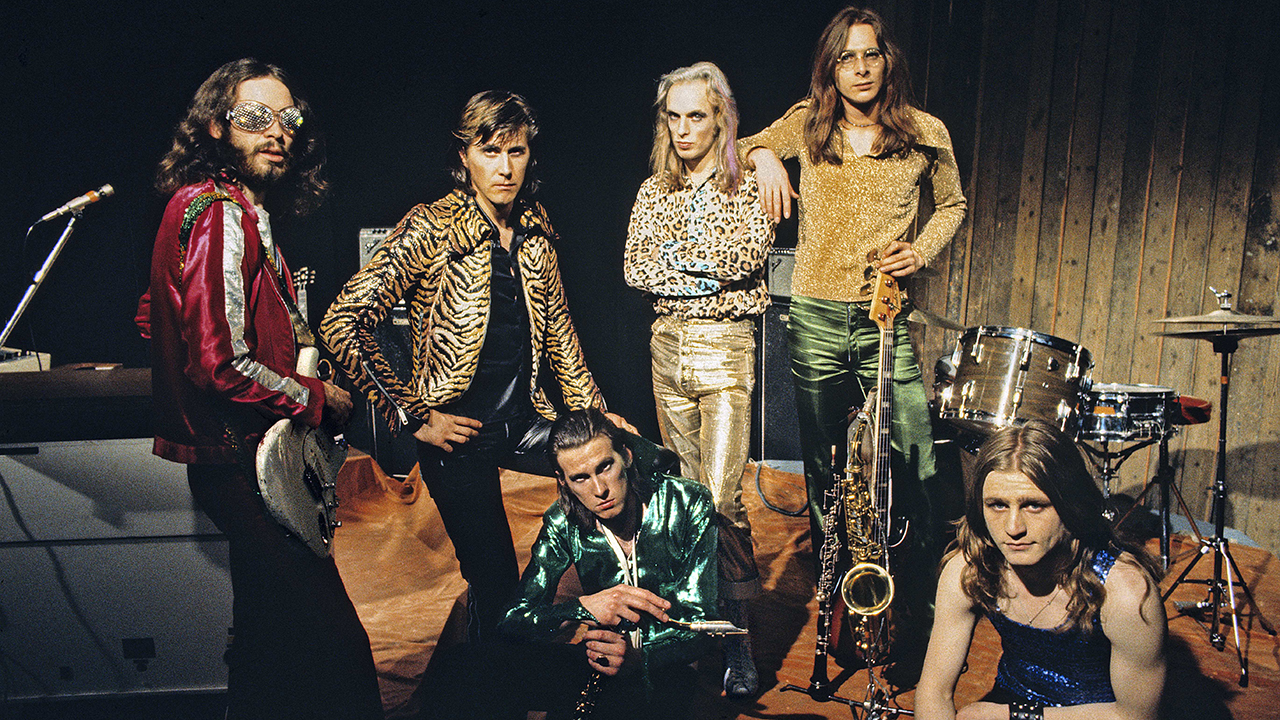The story behind the debut album from Todd Rundgren’s Utopia
His genius for FM power-pop had made Todd Rundgren famous. But with 1973’s A Wizard, A True Star came drugs and a new, progressive direction that paved the way for the full-blown cosmic freakology of his next project

By 1974, fans of Todd Rundgren had had to get used to him changing from record to record. But if the shift he’d effected between his first three albums and 1973’s A Wizard, A True Star had seemed dramatic, this was another quantum leap entirely.
Todd Rundgren’s Utopia was this most mercurial of artists’ first recorded foray with a band since his (late-60s) stint with The Nazz, but it was a long way from Anglophile power-pop and winsome balladry. Four cute guys sporting Beatle cuts this was not. If the image on the front cover of an all-seeing eye at the centre of a pattern of coloured balls suggested there might not be too many I Saw The Light-style three-minute pop singles on this latest venture, confirmation lay with the live photograph on the back: it showed Rundgren on stage at his most gaunt and strange, leaning back, lost in music, flanked by four musicians with outsized hairdos in full space-age regalia, and surrounded by a shiny arsenal of hi-tech equipment that looked as though it was capable of some serious instrumental bombast.
Final proof that Rundgren’s days as a purveyor of sweet pop candy and rock nuggets were behind him was provided by the tracklisting: there were just three numbers on side one, and one taking up the whole of side two. Goodbye, pop concision; hello, elaborate compositions bearing complex multipartite structures.
“The Mahavishnu Orchestra were a big part of our musical lexicon at the time, as were Return To Forever and Weather Report,” says Rundgren, as erudite (not to mention tonsorially idiosyncratic) as ever, talking to Prog in a London hotel ahead of a gig at the Jazz Cafe.
You can discern the impact of the aforementioned jazz-rockers and fusioneers on the music of Todd Rundgren’s Utopia, but there is a funkiness to the playing that led Rundgren to describe it as “Grateful Dead meets P-Funk”. He also cites the influence of Frank Zappa’s Mothers Of Invention. But how did the performances of the musicians on Todd Rundgren’s Utopia – arguably the first ever American prog album – compare with those of their UK counterparts in terms of technoflash expertise?
“The difference was, those English prog rock bands like Yes and ELP, most of their influences were in the classics, whereas ours were in jazz and R&B, and we were more inclined to do something from a funk standpoint,” he reiterates. “That didn’t necessarily stop us attempting to play fast, but I don’t think anyone in the band had the desire, or the chops, to play that way. That would have required a whole other level of ‘woodshedding’ discipline, and we were having too much fun playing to want to do our ‘exercises’.”
Was he aware of developments across the pond?
Sign up below to get the latest from Prog, plus exclusive special offers, direct to your inbox!
“We weren’t ELP fans particularly, and we didn’t mix in the same circles, but we were big Yes fans,” he replies. “ELP’s music was something else – it was about highlighting an instrumentalist, Keith Emerson, whereas Yes were more of a band.”
Another explanation for the way that the tracks on the album - even the 10-minute Freak Parade, 14-minute Utopia Theme and half-hour-long The Ikon – sounded less like lengthy extrapolations and more like short bursts of intricate rhythm and melody fastidiously edited together, was that Rundgren was a superb arranger.
“I was an orchestrator as much as a player,” he asserts of the fragments pieced together at Secret Sound studio in New York in early 1974 (with the exception of opener Utopia Theme, which was recorded live the previous November at the Fox Theatre in Atlanta, Georgia). “My job, beside fronting the band, was to make decisions as to how the various musical sections should fit.”
Furthermore, his fellow Utopians were songwriters in their own right whose skills had been honed on the NYC circuit (Mark ‘Moogy’ Klingman, who sadly died in November 2011, had jammed with Hendrix while his songs were covered by everyone from Johnny Winter to Bette Midler). This was something else that separated them from the UK prog fraternity.
“We came from a songwriting sensibility as opposed to having freeform song structures where only playing was necessary,” explains Rundgren. “We didn’t have a strictly purist prog rock approach. There was jamming, but it came between more melodic verse/chorus things.”
He agrees, however, that Utopia provided him with his first opportunity for some serious guitar wizardry since The Nazz, even if virtuosity for its own sake wasn’t
a priority.
“I’d made my success as a songwriter and singer so I wanted a band principally so I could play guitar in one form or another,” he admits. “Fusion presented challenges so you had to be very good performance-wise. It was very technically ambitious. I certainly got faster, although I had no aspirations to be a John McLaughlin.”
He continues: “We all looked at this as an opportunity to do something aggressive and experimental in instrumental music because there’s weren’t many of those until prog rock and jazz fusion became popular forms. It was a lot of fun. My success as a solo artist allowed us to take a slightly radical approach. The tenor was enthusiastic and experimental.”
It also came with its in-built philosophy. Talking to me in 1999 for a series of CD reissues, Rundgren explained the Utopia concept, and the sense of missionary zeal expressed throughout the album.
“I realised I had an inclination to get into an elitist music that only certain people could appreciate, music with transportive elements,” he declared. “There were no ‘10 Commandments of Utopianism’, but I did feel that we should have the same quasi-spiritual objectives as the fusion bands. More than a commune, Utopia would be a model for human interaction. And I felt the audience should be encouraged to become a society of the mind.”
Back in the present, I ask whether Rundgren and co were high at the time?
“We were all into different things,” he reveals. “No one was into heroin or methedrine. I do remember being up in Santa Fe and someone bestowing upon us a whole load of mushrooms that everybody took.
“But,” he adds, laughing, “I know for a fact that I was the only one in the band who would show up for work with a peyote button in my mouth.”
In addition to his mescaline trips, Rundgren was, he says, “trying to integrate my expanding view of the world and cosmology by augmenting it with a lot of reading material”, although he admits that there are some books that he has still to read 38 years later.

There is a feeling of furious spiritual uplift about Todd Rundgren’s Utopia, one enhanced by the trebly nature of the sound, the result of so much music (the album is almost an hour long) being crammed into the grooves. Mark Chapman, the man who murdered John Lennon and notoriously a Rundgren obsessive who left a copy of The Ballad Of Todd Rundgren by his hotel bed on the day of the assassination, picked up on this quality of transcendence. In the Jack Jones biography Let Me Take You Down, in a chapter entitled God And Todd, Chapman waxes euphoric about his favourite Rundgren tracks, especially Freedom Fighters (at four minutes, the shortest song on the album), as though its intense urgency somehow justified his heinous zealotry.
It was a disturbing outcome for a positivist album designed to counter the downer consciousness of the early 70s, and the likes of Lou Reed, Bowie and Iggy Pop.
Rundgren is uncomfortable about being drawn into a conversation about Chapman, dismissing Freedom Fighters as “a musical after-thought written at the last minute because there was nothing on the album that vaguely resembled a single”. But he accepts that it was meant as a call to arms (“Kind of ‘pick up your guitars, boys, and rock out’”) on a record broadly concerned with providing succour for society’s marginal types.
“The lyrics were for people on the fringes,” he explains. “Freak Parade, The Ikon, too, was about fringe-thinking. The Utopia Theme was about that state of consciousness, the ‘city in my head’, that
mental state.”
Collectively, Utopia – a sort of benign dictatorship, with Rundgren affording the others ample chances to take instrumental flight – achieved a higher state of consciousness when they took the album on the road. Concerts might last three or four hours, with renditions of The Ikon being feats of improvisatory endurance lasting three times longer than the album version.
“That was just the state you got into,” recalls Rundgren, “when everybody knows where they’re at and they’re fairly confident about where they’re going. You get into the zen of it. You’re just there. You don’t even think about how long you’ve been doing it – suddenly, three or four hours have gone by and it’s time to wrap it up.
“In those days,” he furthers, “we had a guitar player and three keyboard players and everyone took a 10-minute solo on every song. The audience didn’t notice the time going by as they were so high on acid!”
In January 2011, Rundgren and his Utopians (minus green-haired synth whiz M Frog Labat) reconvened for the first time since 1975 for a charity gig in aid of Moogy Klingman, then battling bladder cancer. They played the album in its entirety – every speed-racing, prog-inflected, funk-addled note.
“We were struggling a bit,” grins Rundgren, “but everyone in the audience was so thrilled to see us, they weren’t aware of our shortcomings. I never make the assumption that the audience comes to see how well you can play it, like going to see an orchestra where they have to do it perfectly every night. We like it when things don’t go exactly as planned.”
Did the audience get off on the cosmic joy of it all?
“If there is such a thing,” he says, drily, “There was a soupçon of that.”
Probably more than was felt by Rundgren’s record company, Bearsville, when he delivered the commercially unviable finished product in 1974.
“I don’t know to what degree they were delighted or horrified by it,” he considers. “Suffice to say that there were people at the label who had no compunction about telling me flat-out that they didn’t care about the band. But then again, when they signed me, they didn’t know they were also going to get Utopia.”
So they got much more than they bargained for?
“You could say that, yeah.”
Paul Lester is the editor of Record Collector. He began freelancing for Melody Maker in the late 80s, and was later made Features Editor. He was a member of the team that launched Uncut Magazine, where he became Deputy Editor. In 2006 he went freelance again and has written for The Guardian, The Times, the Sunday Times, the Telegraph, Classic Rock, Q and the Jewish Chronicle. He has also written books on Oasis, Blur, Pulp, Bjork, The Verve, Gang Of Four, Wire, Lady Gaga, Robbie Williams, the Spice Girls, and Pink.

